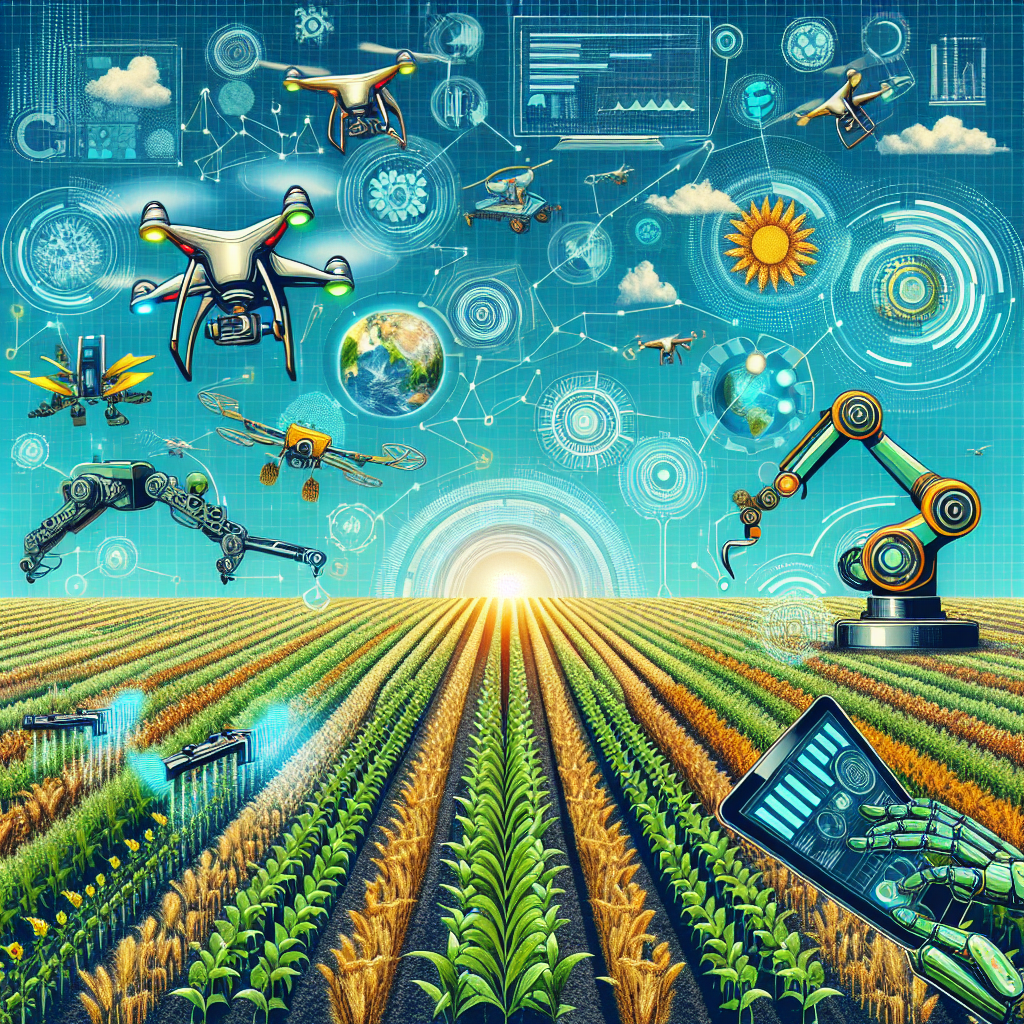Artificial intelligence (AI) has the potential to revolutionize the agriculture industry in the coming years, with a wide range of applications that can help farmers improve productivity, reduce costs, and increase sustainability. From precision agriculture to crop monitoring and yield prediction, AI has the power to transform the way we produce food and manage our natural resources.
One of the key areas where AI is making a significant impact in agriculture is precision agriculture. This involves using advanced technologies such as drones, sensors, and AI algorithms to monitor and manage crops with a high level of precision. By collecting and analyzing data on soil conditions, weather patterns, and crop health, farmers can make more informed decisions about when to plant, fertilize, irrigate, and harvest their crops. This not only improves yields but also reduces the use of inputs such as water, fertilizers, and pesticides, leading to a more sustainable and environmentally friendly approach to farming.
AI is also being used to monitor and predict crop yields more accurately than ever before. By analyzing historical data on crop performance, weather patterns, and other factors, AI algorithms can provide farmers with real-time information on how their crops are likely to perform in the future. This can help farmers make better decisions about when to harvest, how much to plant, and which crops to prioritize, leading to higher yields and increased profits.
Another area where AI is making a big impact is in pest and disease management. By analyzing data on pest populations, crop health, and weather conditions, AI algorithms can help farmers detect and respond to pest outbreaks more quickly and effectively. This can reduce the need for chemical pesticides and other harmful interventions, leading to healthier crops and a more sustainable farming practices.
AI is also being used to optimize supply chains and logistics in agriculture. By analyzing data on demand, transportation costs, and market trends, AI algorithms can help farmers and food producers make more efficient decisions about when and where to sell their products. This can reduce waste, increase profits, and improve the overall efficiency of the food system.
In addition to these practical applications, AI is also driving innovation in agricultural research and development. By analyzing vast amounts of data on plant genetics, soil health, and climate patterns, AI algorithms can help researchers identify new crop varieties that are more resilient to climate change, pests, and diseases. This can help ensure a stable and secure food supply for future generations.
Despite the many benefits of AI in agriculture, there are also some challenges and concerns to consider. One of the main concerns is the potential for AI to displace human workers in the agriculture industry. As AI technologies become more advanced, there is a risk that they could replace traditional farming practices and jobs, leading to unemployment and economic disruption in rural communities. It will be important for policymakers and industry leaders to address these issues and ensure that the benefits of AI are shared equitably across the agriculture sector.
Another concern is the potential for AI to exacerbate existing inequalities in the agriculture industry. As AI technologies become more widespread, there is a risk that large agribusinesses and multinational corporations could dominate the market, leaving small farmers and rural communities at a disadvantage. It will be important for governments and organizations to promote policies that support small-scale farmers and ensure that AI technologies are accessible to all.
Overall, the future of agriculture looks bright with the potential of AI to revolutionize the industry and drive innovation in sustainable farming practices. By harnessing the power of AI, farmers can improve productivity, reduce costs, and increase sustainability, leading to a more secure and resilient food supply for future generations.
FAQs:
Q: What is precision agriculture and how is AI used in this field?
A: Precision agriculture involves using advanced technologies such as drones, sensors, and AI algorithms to monitor and manage crops with a high level of precision. AI is used to analyze data on soil conditions, weather patterns, and crop health, helping farmers make more informed decisions about planting, fertilizing, irrigating, and harvesting their crops.
Q: How can AI help farmers predict crop yields?
A: AI algorithms analyze historical data on crop performance, weather patterns, and other factors to provide farmers with real-time information on how their crops are likely to perform in the future. This can help farmers make better decisions about when to harvest, how much to plant, and which crops to prioritize, leading to higher yields and increased profits.
Q: How is AI used in pest and disease management in agriculture?
A: AI is used to analyze data on pest populations, crop health, and weather conditions to help farmers detect and respond to pest outbreaks more quickly and effectively. This can reduce the need for chemical pesticides and other harmful interventions, leading to healthier crops and a more sustainable farming practices.
Q: What are some of the challenges and concerns of using AI in agriculture?
A: Some of the main concerns include the potential for AI to displace human workers in the agriculture industry, exacerbate existing inequalities, and dominate the market. It will be important for policymakers and industry leaders to address these issues and ensure that the benefits of AI are shared equitably across the agriculture sector.

